#maternalmentalhealth
Text
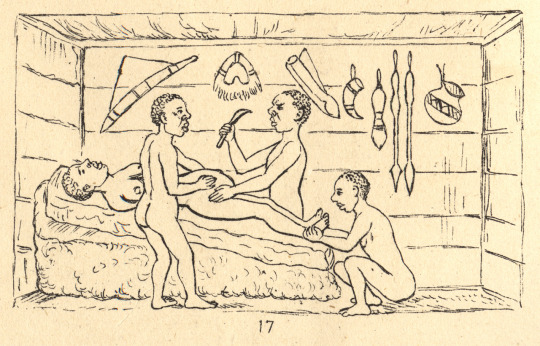
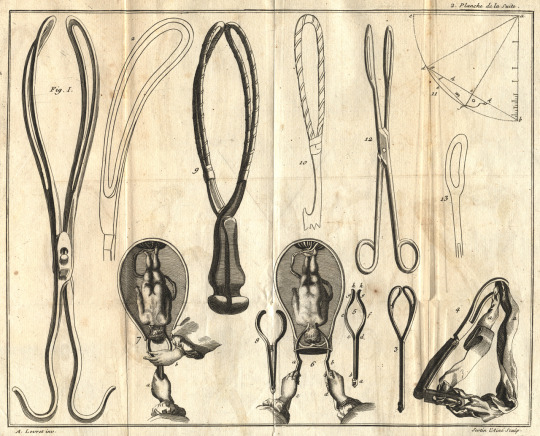
Caesarean section was considered a life-threatening procedure in England that was only to be undertaken in the direst of circumstances and facing the decision on whether to save the life of the mother or baby.
The first successful C-section done in Africa ("success" defined as both surviving) is usually credited to Irish surgeon James Barry (Margaret Ann Bulkley), who performed the operation in Cape Town, South Africa.
This may well not be true due to the quality of surgical techniques in present-day Uganda. Ugandans performed non-fatal C-sections without anesthesia but with supply of banana wine as discovered by a missionary.
In 1879, medical missionary Robert Felkin was visiting indigenous people in the Kingdom of Bunyoro. He later published his observations of obstetric care, which included an account of a C-section that he was permitted to witness.
He had a chance to observe a Caesarian section being performed on a young woman. He observed that in Uganda, C-sections were performed with the intention of saving both the mother and the baby, unlike in Europe where maternal mortality was high.
In the Ugandan c-section, there were three men; one was holding a knife, the other was holding unto the ankles of the young woman and the third stood above her abdomen, supporting either sides with his hands in the course of the surgical procedure.
The surgeon who wielded the knife foremost washed his hands, surgical instruments and the abdomen of the young woman with banana wine for sterilization purposes.
She was given some banana wine to drink in order to make her less sensitive to the surgeon's blades.
The surgeon started the C-section by reciting an incantation.
After the ceremonial prayer, he proceeded with the operation.
In Europe, the concept of surgeons sterilizing their hands before the c-section was very new, and only just starting to catch on. Ultimately, it prevented a lot of deaths once they started doing it.
The Ugandans had mastered the procedure long before there was any interaction with Europeans, as well as with explorers, missionaries and plunderers from other parts of the world, who came to steal and enslave.
•••
Los británicos consideraban que las cesáreas eran procedimientos que ponían en riesgo la vida y que solo tenían que ser realizadas en las peores de las circunstancias y enfrentándose a la decisión de salvar a la madre o al bebé.
La primera cesárea exitosa fue realizada en África (“exitosa” debido a que ambos sobrevivieron) y usualmente se le acredita al cirujano irlandés James Barry (Margaret Ann Bulkley), quién realizó la operación en Ciudad del Cabo, Sudáfrica.
Esto puede que no sea cierto debido a la calidad de las técnicas quirúrgicas de la Uganda actual. Los ugandeses realizaban cesáreas no fatales sin anestesia pero administrando vino hecho de bananas, como fue descubierto por un misionero.
En 1879, un misionero médico llamado Robert Felkin, andaba visitando a la población indígena del Reino de Bunyoro. Luego de eso, público sus observaciones en cuanto a los cuidados obstétricos y esto incluía los acontecimientos de una cesárea que le habían permitido presenciar.
Él tuvo la oportunidad de observar cómo se practicaba una cesárea en una mujer joven. Observó que en Uganda, las cesáreas eran realizadas con la intención de salvar a ambos, madre y bebé, a diferencia de Europa dónde la tasa de mortalidad materna era alta.
En la cesárea ugandesa, habían tres hombres: uno sosteniendo la cuchilla, el otro sosteniendo los tobillos de la mujer y el otro se paraba cerca del abdomen para brindar soporte con los manos hacia cualquiera de los dos lados, durante el curso del procedimiento quirúrgico.
El cirujano que portaba la cuchilla lavaba tanto sus manos, como los instrumentos quirúrgicos y el abdomen de la mujer con vino de banana por propósitos de esterilización.
Se le daba de beber algo de vino hecho de bananas para hacerla menos sensible a las cuchillas del cirujano.
El cirujano comenzaba la cesárea recitando un conjuro.
Después del rezo ceremonial, procedía a realizar la operación.
En Europa, el concepto de que los cirujanos se esterilizaran las manos antes de una cesárea era algo demasiado nuevo y venían dándose cuenta. Al final, una vez que comenzaron a hacerlo, se evitaron muchas muertes.
Los ugandeses habían dominado el procedimiento mucho antes de que tuvieran algún tipo de interacción con los Europeos, así como también con los exploradores, misioneros y saqueadores de otras partes del mundo, quienes llegaron a robar y esclavizar.
#blacklivesmatter#blacklivesalwaysmatter#english#spanish#blackhistory#history#share#read#blackpeoplematter#blackhistorymonth#c section#maternity#maternalmentalhealth#black maternal health#maternal deaths#black mothers#mothers#motherhood#uganda#knowledgeisfree#knowledge#black history#historyfacts#african history#medicine#knowyourhistory#like#follow#blackhistoryyear#black excellence
57 notes
·
View notes
Text
Bump Bliss: A Modern Guide to Pregnancy Serenity

Welcome to the ultimate guide on achieving pregnancy serenity – Bump Bliss. In this blog post, we'll delve into the key aspects of maintaining a peaceful and joyous pregnancy journey. Whether you're a first-time mom or adding to your growing family, Bump Bliss is here to empower you with knowledge, support, and tranquility. At the core of Bump Bliss is the belief that pregnancy is not just a physical process but a holistic journey. We emphasize the importance of nurturing your physical and mental well-being to ensure a serene experience from conception to delivery.
Navigating Physical Well-being
1. Nutrition Matters: Ensuring a well-balanced diet is crucial during pregnancy. Focus on nutrient-rich foods, incorporating a variety of fruits, vegetables, lean proteins, and whole grains.
2. Safe Exercise: Consult with your healthcare provider to establish a safe exercise routine. Gentle activities like walking and prenatal yoga can boost your energy and promote a healthy pregnancy.
3. Essential Prenatal Vitamins: Discuss with your doctor the essential vitamins needed during pregnancy. Proper supplementation contributes to your overall well-being and supports your baby's development.
Maintaining Mental Health
Mindfulness Techniques: Incorporate mindfulness practices into your daily routine. Deep breathing exercises and meditation can help manage stress and promote emotional balance.
Stress-Relief Strategies: Identify stress triggers and implement strategies to alleviate them. Surround yourself with positivity, engage in hobbies, and seek support from loved ones.
Building a Support System: Connect with other expectant mothers through local groups or online communities. Sharing experiences and advice can be immensely reassuring and comforting.
Navigating the Challenges
1. Physical Well-being: Learn about proper nutrition, safe exercises, and essential prenatal vitamins. Our expert advice ensures a healthy pregnancy for both you and your baby.
2. Mental Health: Discover mindfulness techniques, stress-relief strategies, and tips for maintaining emotional balance throughout your pregnancy.
3. Building a Support System: Bump Bliss emphasizes the importance of a strong support system. Connect with other expecting mothers, share experiences, and create lasting bonds.
Frequently Asked Questions (FAQs)
Q1: Can I exercise during pregnancy?
A1: Absolutely! With your doctor's approval, engaging in gentle exercises like walking and prenatal yoga is beneficial for both you and your baby.
Q2: How do I manage pregnancy-related stress?
A2: Practice mindfulness, indulge in activities you enjoy, and consider seeking professional support if needed. A calm mind contributes to a healthy pregnancy.
Q3: What should I include in my prenatal diet?
A3: Focus on a balanced diet rich in fruits, vegetables, lean proteins, and whole grains. Your healthcare provider can provide personalized recommendations based on your needs.
Conclusion
Embrace the journey of pregnancy with confidence and serenity. Bump Bliss is more than a guide; it's your companion, offering valuable insights and support. Feel free to share this blog on social media platforms and help spread the wisdom of Bump Bliss.
#healthy pregnancy#pregnancy#pregnant#pregnantbelly#women health#health tips#health#health and wellness#healthcare#wellness#women health guide#delivery#postpartum#pregnant women#maternalhealth#maternalmentalhealth
3 notes
·
View notes
Text
Be with someone who will take care of you. Not materialistically, but take care of your soul, your well being, your heart.❤️

@free-thinker-of-a-broken-heart
#freethinker#bosna#citati#ljubav#writing#poezija#quotes#books & libraries#spirituality#travel#balkan quotes#open heart#my heart#maternalmentalhealth#neo soul#rody soul#soulfood#soulinkpoetry#twin souls#i love you ❤️#live#thinking#free thinker#free#free spirit#freedom#free book#book quotes#booklover#masterclass
37 notes
·
View notes
Text

I guess I wasn’t the only one who thought it was malicious/deeply disturbing that they (Kate and KP’s team) released this on Archie’s birthday.
#kate middleton#will and kate#catherine elizabeth#catherine middleton#kensington royal#duchess of cambridge#maternalmentalhealth
20 notes
·
View notes
Photo
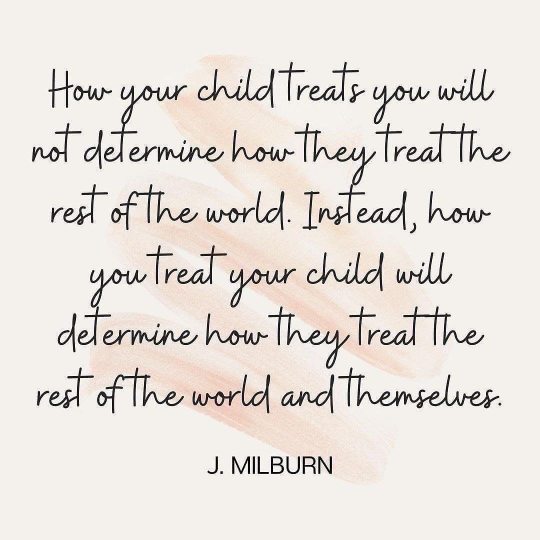
“How your child treats you will not determine how they treat the rest of the world. Instead, how you treat your child will determine how they treat the rest of the world and themselves.” J. Milburn We are their safe place. Children don’t typically act the same with other authority figures, as they do with their parents. There is a connection and trust there that allows them to feel safe enough to crumble into our arms. They throw dirt at us because they know we are the only one’s who care to know what’s hidden in the debris. Disrespectful behaviour is usually misunderstood behaviour. It’s usually communication. It’s not a character defining moment when your child is emotionally dysregulated. We all become dysregulated at times. It’s important to normalize those feelings and model how to process emotions and offer grace. I discuss this further in my latest e-book 👇 Finding Your Calm: A Responsive Parents Guide to Self-Regulation and Co-Regulation Link in bio @responsive_parenting or on the Website: responsiveparentinginspirations.com #ResponsiveParenting #JMilburn #ParentMentalHealth #MaternalMentalHealth #PostPartum #MensMentalHealth #ParentingLife #HealingJourney #GentleParenting #AttachmentParenting #Attachment #AttachmentTheory #Parenthood #SelfHealing #SelfCompassion #EarlyChildhood #ChildDevelopment #PTSD #CPTSD #ChildhoodMemories #Triggers #HoldingSpace #SelfRegulation #Empathy #UnconditionalLove #Parent #KidLife #AlwaysLearning #PTSDAwareness https://www.instagram.com/p/Cg2Zz38p298/?igshid=NGJjMDIxMWI=
#responsiveparenting#jmilburn#parentmentalhealth#maternalmentalhealth#postpartum#mensmentalhealth#parentinglife#healingjourney#gentleparenting#attachmentparenting#attachment#attachmenttheory#parenthood#selfhealing#selfcompassion#earlychildhood#childdevelopment#ptsd#cptsd#childhoodmemories#triggers#holdingspace#selfregulation#empathy#unconditionallove#parent#kidlife#alwayslearning#ptsdawareness
2 notes
·
View notes
Text
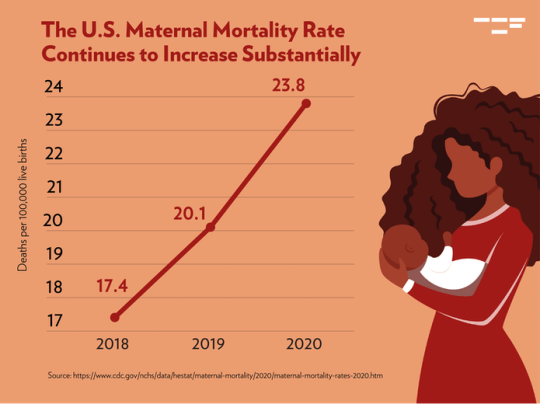
#maternal mortality#maternalmentalhealth#maternal mortality rate#planned parenthood#roe vs wade#human rights#bodily autonomy#reproductive health#reproductive rights#abortion is healthcare
4 notes
·
View notes
Text
Honoring Black Maternal Health Week: April 11th - April 17th
From April 11th to April 17th, we recognize Black Maternal Health Week, a crucial time to raise awareness about the unique challenges and disparities faced by Black birthing mothers, birthing parents, and their families. This week is especially significant as it begins with the International Day of Maternal Health and Rights on April 11th, highlighting the intersectionality of maternal health and human rights.
Black Maternal Health Week shines a spotlight on the alarming disparities in maternal health outcomes experienced by Black mothers and birthing parents. Despite advances in medical care, Black women are disproportionately affected by pregnancy-related complications and have significantly higher rates of maternal mortality compared to their white counterparts. Black infants also face higher rates of mortality and morbidity, highlighting systemic inequities in access to quality healthcare and support.
It is unacceptable that in the United States, Black women are three to four times more likely to die from pregnancy-related causes than white women. These disparities persist regardless of socioeconomic status, education level, or access to healthcare. Structural racism, bias, and unequal treatment within the healthcare system contribute to these disparities, perpetuating a cycle of inequity and injustice.
During Black Maternal Health Week, we stand in solidarity with Black mothers, and birthing parents, families, and communities, and we amplify their voices in calling for action. We demand policies and programs that prioritize maternal health equity, address systemic barriers to care, and center the experiences and needs of Black birthing individuals. We advocate for culturally competent care, access to comprehensive reproductive healthcare, and support for maternal mental health.
As we observe Black Maternal Health Week, let's continue to take action to address the disparities in maternal health outcomes. Let's educate ourselves and our communities about the root causes of these disparities and the importance of advocating for change. Let's support organizations and initiatives that work to improve Black maternal health and empower birthing parents to navigate the healthcare system with dignity and respect. If we work together, we can create a future where every mother and family receives the care and support they deserve, regardless of their race or ethnicity.
Organizations that we can support or promote to our Black Communities for assistance:
- Black Mamas Matter Alliance
- Black Women's Health Imperative
- National Birth Equity Collaborative
- Sista Midwife Productions
- National Black Doulas Association
- SisterSong
- The Shades of Blue Project
- Mamatoto Village
- Black Birth Justice
- Loveland Foundation
- Every Mother Counts
- Momology Maternal Wellness Club
- Sisters in Loss
- Birthing Advocacy Doula Trainings
Dr. Deilen Michelle Villegas, Ph.D., DNM- Board Certified Holistic Health Practitioner, Traumatic Stress Expert, Trauma Recovery and Behavioral Health Specialist, Certified Holistic Doula
#BlackMaternalHealth#BMHW#MaternalHealthEquity#EndMaternalMortality#HealthJustice#ReproductiveJustice#StandWithBlackMamas#MentalHealthMatters#BlackMomsMatter#BIPOCDoulas#Advocates#MaternalRights#HumanRights#maternalmentalhealth#PrenatalCare#PostnatalCare#postpartum#postpartumhealth#WeMatter#DoulaSupport#SaveLives#SupportGrievingMoms#BlackMaternalHealthWeek#HarmonyoverDisparity#WeHealOurselves#WeHealOurCommunities#WeHealTogether
0 notes
Text
0 notes
Text
Overturning Roe v. Wade: Consequences for midlife women’s health and well-being
Limiting or removing access to aspects of reproductive health services affects particular populations of women, particularly women of color and midlife women experiencing unintended pregnancies.
930,000 abortions were obtained in the United States in 2020
Where will women seek abortion care if they are not given access to legal abortions?
The researchers predict that the overwhelming majority of consequences of the overturning of Roe v. Wade in the United States will fall on minority women, women of low socioeconomic status, and midlife women experiencing unintended pregnancies.
(Berg and Woods 2023)
#reproductive health#abortion is healthcare#abortion access#abortion rights#maternalhealth#maternal mortality#maternalmentalhealth
1 note
·
View note
Text
Maternal mental health: 70% of US counties do not have enough providers
Although postpartum depression and anxiety are common experiences among women, a recent report from the Maternal Mental Health Policy Center reveals a troubling lack of resources in most counties in the United States.
An estimated 70% of counties lack enough perinatal mental health providers, prescribers, and community-based organizations to address the needs of women at this crucial stage.

The Maternal Mental Health Policy Center suggests that at least five perinatal mental health providers are needed for every 1,000 births in a county to ensure mothers have access to necessary support after giving birth.
However, the reality is that the gap persists, and is particularly pronounced in California, Texas and Arizona, which are home to the three counties with the largest shortages of maternal mental health providers in the country. Read more
#maternalmentalhealth#mentalhealth#postpartum#motherhood#postpartumdepression#pregnancy#momlife#mentalhealthawareness#perinatalmentalhealth#mentalhealthmatters#postpartumanxiety#fourthtrimester#maternalhealth#selfcare#anxiety#postpartumsupport#postpartumjourney#parenting#ppd#postnataldepression#depression#postpartumhealth#postnatal#motherhoodunplugged#motherhoodjourney#mumssupportingmums#newmom#pnd#maternalmhmatters#momsmatter
0 notes
Text
How Breastfeeding can reduce risk of Postpartum Depression
Introduction
In recent years, research has begun to shed light on the intriguing relationship between breastfeeding and Postpartum Depression (PPD), suggesting that the act of breastfeeding may offer some level of protection against PPD.

Postpartum Depression(PPD) is when mothers suffer from a state of depression, post-pregnancy. It is a serious mental health issue that impacts a significant number of mothers after childbirth and is treatable with correct and timely diagnosis. With one in seven mothers experiencing this condition, it’s not just a “mom issue” but a societal one as well. Explore the science-backed relationship between breastfeeding and PPD in this informative blog, and learn how making informed choices can benefit maternal mental health.
Consequences of Postpartum Depression
The ripple effects of PPD can be devastating, affecting not only the mother but also the child, family, and even the broader society. For the mother, PPD can mean severe emotional distress, affecting her ability to bond with her baby and disrupting her overall well-being. This emotional turmoil extends to the child, affecting early development, and has a knock-on effect on the family unit. On a societal level, untreated PPD places a strain on healthcare systems and contributes to broader social issues.
The Benefits of Breastfeeding
There has been evidence that breastfeeding has positive impacts on both the child and the parent. The World Health Organization and the American Academy of Pediatrics have recommended that children are exclusively breastfed for the initial six months of life.
Breast milk helps protect infants from infections and diseases and it also provides health benefits to the new mother by lowering their risk of various conditions. Breastfeeding mothers have reported reductions in anxiety, stress, and negative mood while displaying a stable sleep pattern and lower blood pressure. New mothers often experience pressures after birth like labor pain, shortage of sleep, and anxiety. Breastfeeding can help them and reduce stress. It also plays a pivotal part in preventing mental health issues from developing.
Breastfeeding and Postpartum Depression
That there could be a relationship between breastfeeding and PPD is becoming increasingly clear through numerous studies. For example, research published in the Journal of Advanced Nursing indicates a lower incidence of PPD among mothers who breastfeed. This could be due to several factors, including hormonal changes and the act of bonding during breastfeeding.
More and more new mothers are suffering due to a variety of factors such as the changes in our social fabric (more nuclear families leading to isolation), separation of mother & baby after birth, birth trauma, and lack of a strong postnatal support system in the postpartum recovery and breastfeeding phases. All of these could be leading to an increase in postnatal depression cases. Helping and supporting a mother and her baby to breastfeed without problems can build confidence in the mother’s ability to care for her baby, directly impacting her mental wellbeing.
Breastfeeding Intention and Initiation
Planning to breastfeed has been shown to have a significant positive impact on maternal mental health. Mothers who intend to breastfeed and are successful in doing so often report fewer symptoms related to PPD. The early initiation of breastfeeding not only benefits the child but also contributes to the mother’s mental well-being by reducing stress levels and promoting bonding.
Breastfeeding and Maternal Mood
Breastfeeding triggers the release of oxytocin, commonly known as the “love hormone.” This hormone is linked to feelings of relaxation and emotional bonding, which could help to improve the mother’s mood and potentially alleviate symptoms of PPD. Several studies support this, showing a marked improvement in maternal mood with continued breastfeeding. Read more for https://veiralife.com/breastfeeding-and-postpartum-depression/
0 notes
Text

"𝑰𝒇 𝒚𝒐𝒖 𝒇𝒊𝒍𝒍 𝒕𝒉𝒆 𝒃𝒐𝒘𝒍 𝒕𝒐𝒐 𝒎𝒖𝒄𝒉, 𝒊𝒕 𝒎𝒊𝒈𝒉𝒕 𝒄𝒓𝒂𝒄𝒌 𝒂𝒏𝒅 𝒃𝒓𝒆𝒂𝒌. 𝑺𝒂𝒗𝒆 𝒕𝒉𝒆 𝒑𝒍𝒂𝒏𝒆𝒕 𝒃𝒆𝒇𝒐𝒓𝒆 𝒊𝒕 𝒐𝒗𝒆𝒓𝒇𝒊𝒍𝒍𝒔 𝒃𝒚 𝒄𝒐𝒏𝒕𝒓𝒐𝒍𝒍𝒊𝒏𝒈 𝒕𝒉𝒆 𝒑𝒐𝒑𝒖𝒍𝒂𝒕𝒊𝒐𝒏."
Let us celebrate world population day by promising ourselves to be more responsible for the alarming rate of the growing population🌏
Take a stand. Raise awareness.
Control global population
Celebrate this 𝐰𝐨𝐫𝐥𝐝 𝐩𝐨𝐩𝐮𝐥𝐚𝐭𝐢𝐨𝐧 𝐝𝐚𝐲👬👭
For more details:
🌐 www.transorze.com
☎️ 9495833319
OUR COURSES:
🩺𝐌𝐞𝐝𝐢𝐜𝐚𝐥 𝐒𝐜𝐫𝐢𝐛𝐢𝐧𝐠
🩺𝐌𝐞𝐝𝐢𝐜𝐚𝐥 𝐂𝐨𝐝𝐢𝐧𝐠
🩺𝐌𝐞𝐝𝐢𝐜𝐚𝐥 𝐓𝐫𝐚𝐧𝐬𝐜𝐫𝐢𝐩𝐭𝐢𝐨𝐧
🩺𝐇𝐨𝐬𝐩𝐢𝐭𝐚𝐥 𝐀𝐝𝐦𝐢𝐧𝐢𝐬𝐭𝐫𝐚𝐭𝐢𝐨𝐧
💻𝐃𝐢𝐠𝐢𝐭𝐚𝐥 𝐌𝐚𝐫𝐤𝐞𝐭𝐢𝐧𝐠
📝𝐎𝐄𝐓 𝐓𝐫𝐚𝐢𝐧𝐢𝐧𝐠
#worldpopulationday#familyplanning#reproductivehealth#choosetoplan#sustainablepopulation#populationcontrol#globaldevelopment#genderequality#maternalmentalhealth#healthyfamilies#youthempowerment#futuregenerations#educationforall#placement#aapc#hospitals#cpc#transorzesolutions#education#learn#knowledge#exams#student#educational#motivation
0 notes
Text

"𝑰𝒇 𝒚𝒐𝒖 𝒇𝒊𝒍𝒍 𝒕𝒉𝒆 𝒃𝒐𝒘𝒍 𝒕𝒐𝒐 𝒎𝒖𝒄𝒉, 𝒊𝒕 𝒎𝒊𝒈𝒉𝒕 𝒄𝒓𝒂𝒄𝒌 𝒂𝒏𝒅 𝒃𝒓𝒆𝒂𝒌. 𝑺𝒂𝒗𝒆 𝒕𝒉𝒆 𝒑𝒍𝒂𝒏𝒆𝒕 𝒃𝒆𝒇𝒐𝒓𝒆 𝒊𝒕 𝒐𝒗𝒆𝒓𝒇𝒊𝒍𝒍𝒔 𝒃𝒚 𝒄𝒐𝒏𝒕𝒓𝒐𝒍𝒍𝒊𝒏𝒈 𝒕𝒉𝒆 𝒑𝒐𝒑𝒖𝒍𝒂𝒕𝒊𝒐𝒏."
Let us celebrate world population day by promising ourselves to be more responsible for the alarming rate of the growing population🌏
Take a stand. Raise awareness.
Control global population
Celebrate this 𝐰𝐨𝐫𝐥𝐝 𝐩𝐨𝐩𝐮𝐥𝐚𝐭𝐢𝐨𝐧 𝐝𝐚𝐲👬👭
For more details:
🌐 www.transorze.com
☎️ 9495833319
OUR COURSES:
🩺𝐌𝐞𝐝𝐢𝐜𝐚𝐥 𝐒𝐜𝐫𝐢𝐛𝐢𝐧𝐠
🩺𝐌𝐞𝐝𝐢𝐜𝐚𝐥 𝐂𝐨𝐝𝐢𝐧𝐠
🩺𝐌𝐞𝐝𝐢𝐜𝐚𝐥 𝐓𝐫𝐚𝐧𝐬𝐜𝐫𝐢𝐩𝐭𝐢𝐨𝐧
🩺𝐇𝐨𝐬𝐩𝐢𝐭𝐚𝐥 𝐀𝐝𝐦𝐢𝐧𝐢𝐬𝐭𝐫𝐚𝐭𝐢𝐨𝐧
💻𝐃𝐢𝐠𝐢𝐭𝐚𝐥 𝐌𝐚𝐫𝐤𝐞𝐭𝐢𝐧𝐠
📝𝐎𝐄𝐓 𝐓𝐫𝐚𝐢𝐧𝐢𝐧𝐠
#worldpopulationday#familyplanning#reproductivehealth#choosetoplan#sustainablepopulation#populationcontrol#globaldevelopment#genderequality#maternalmentalhealth#healthyfamilies#youthempowerment#futuregenerations#educationforall#placement#aapc#hospitals#cpc#transorzesolutions#education#learn#knowledge#exams#student#educational#motivation
0 notes
Text

#momsjour#postpartumdepression#postpartum#postpartumanxiety#mentalhealth#postpartumjourney#motherhood#depression#anxiety#momlife#pregnancy#ppd#postpartumsupport#maternalmentalhealth#mentalhealthawareness#newmom#postpartumbody#selfcare#mentalhealthmatters#depressionawareness#depressionhelp#postpartumlife
1 note
·
View note
Photo
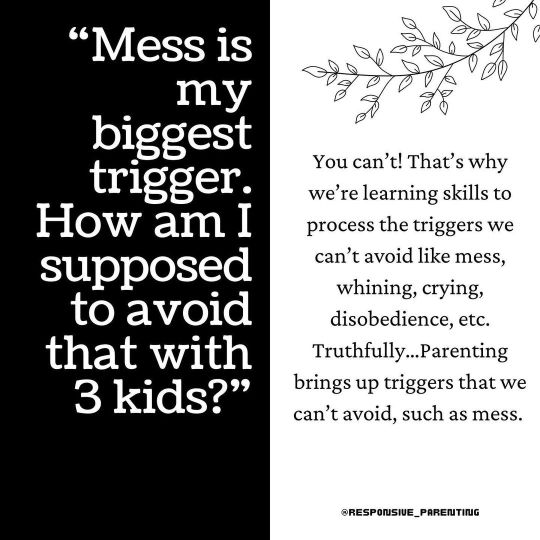
“Mess is my biggest trigger. How am I supposed to avoid that with 3 kids?” You can’t! That’s why we’re learning skills to process the triggers we can’t avoid like mess, whining, crying, disobedience, etc. Parenting brings up triggers that we can’t avoid, such as mess. I think the impulse for many is to resolve this trigger by constantly trying to keep things clean. The thing is, this often suppresses the feeling and perpetuates the cycle of frustration and anxiety. Let’s look at some of the very valid reasons why mess can be overwhelming. - Reflection of your worthiness as a parent/partner - Feel overwhelmed by too much clutter - Feel unappreciated - Feel unsupported - Sensory overload - Feeling disorganized - Feel like all the house work is your responsibility - Feel like others don’t respect the space the way you do - Feel tired with the constant work So all of these are very valid reasons to feel triggered. Now with a trigger like this, we are not INVALIDATING. We are validating the emotions. So instead of trying to talk yourself out of these feelings, your going to validate them. Why? Because YOUR TRIGGER IS VALID!! Once you’ve validated yourself, you can self-regulate and once your are self-regulated, you can think about how you want to deal with the situation. Learn more about this in my latest E 📖 Finding Your Calm: A Responsive Parents Guide to Self-Regulation and Co-Regulation Link in bio @responsive_parenting or on the Website: responsiveparentinginspirations.com #ResponsiveParenting #JMilburn #ParentMentalHealth #MaternalMentalHealth #PostPartum #MensMentalHealth #ParentingLife #HealingJourney #GentleParenting #AttachmentParenting #Attachment #AttachmentTheory #Parenthood #SelfHealing #SelfCompassion #EarlyChildhood #ChildDevelopment #PTSD #CPTSD #ChildhoodMemories #Triggers #HoldingSpace #SelfRegulation #Empathy #UnconditionalLove #Parent #KidLife #AlwaysLearning #PTSDAwareness https://www.instagram.com/p/Cgz-TVkv7Yu/?igshid=NGJjMDIxMWI=
#responsiveparenting#jmilburn#parentmentalhealth#maternalmentalhealth#postpartum#mensmentalhealth#parentinglife#healingjourney#gentleparenting#attachmentparenting#attachment#attachmenttheory#parenthood#selfhealing#selfcompassion#earlychildhood#childdevelopment#ptsd#cptsd#childhoodmemories#triggers#holdingspace#selfregulation#empathy#unconditionallove#parent#kidlife#alwayslearning#ptsdawareness
2 notes
·
View notes
Photo

We go above and beyond for our patients. Book today!!!👍👍👍👍👍👍👍 . . . . . #infertility #fertility #infertilityawareness #maternalmentalhealth #iwantababy #acupunctureworks #chiropractic #ttccommunity #acupuncture #shadygrovefertility #chinesemedicine #acupuncturelove #acupuncturist #ttcwithpcos #zen #ttcsisters #annapolismd #fertilityjourney #holistichealth #ttc #ivf #hormonehealth #tcm #annapolis #endometriosis #herbalmedicine #ccrm #easternshore #ivfsurvivor #liverhealth https://www.instagram.com/p/CHibLqQnRE-/?igshid=NGJjMDIxMWI=
#infertility#fertility#infertilityawareness#maternalmentalhealth#iwantababy#acupunctureworks#chiropractic#ttccommunity#acupuncture#shadygrovefertility#chinesemedicine#acupuncturelove#acupuncturist#ttcwithpcos#zen#ttcsisters#annapolismd#fertilityjourney#holistichealth#ttc#ivf#hormonehealth#tcm#annapolis#endometriosis#herbalmedicine#ccrm#easternshore#ivfsurvivor#liverhealth
1 note
·
View note